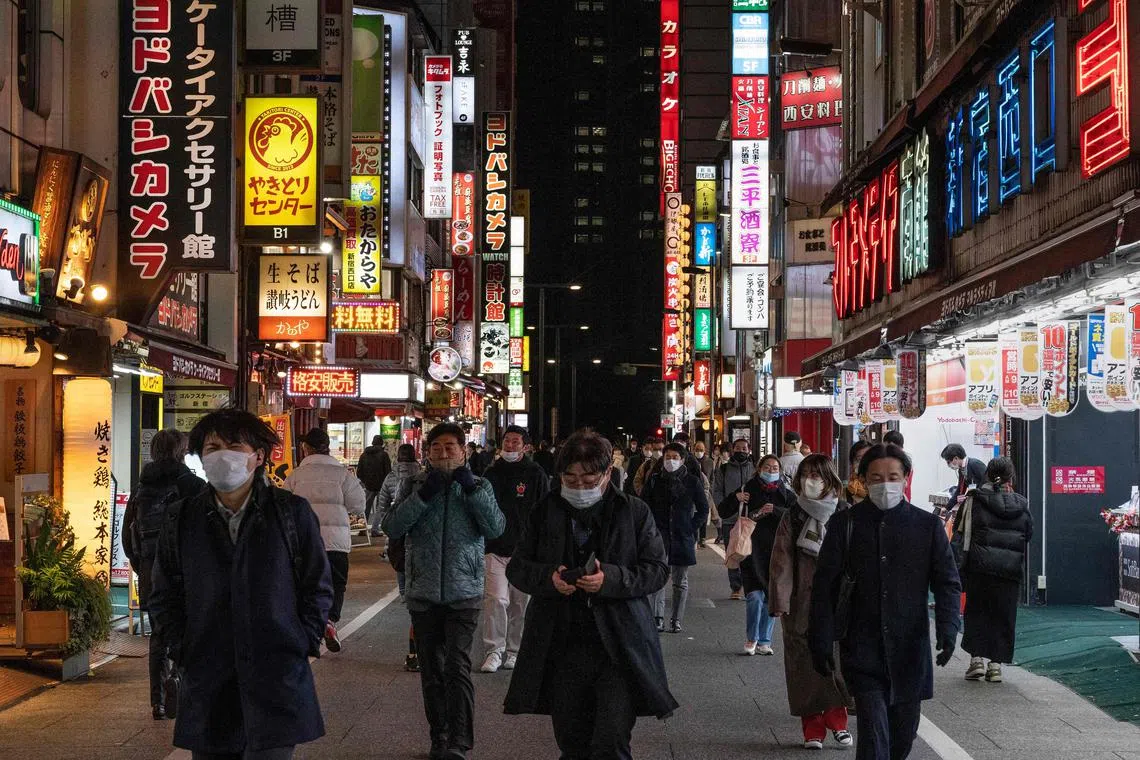Severe allergy season in Japan threatens to drag down spending, worker productivity
Sign up now: Get insights on Asia's fast-moving developments

Roughly 40 per cent of Japan’s population suffered pollen allergies in 2019, up from about 20 per cent two decades ago.
PHOTO: AFP
Follow topic:
TOKYO – Pollen levels are expected to double in some areas of Japan this year, triggering sneezing attacks, itchy eyes and potentially a drag on consumer spending.
Record high temperatures last summer gave rise to a decade-high volume of cedar flowers in Japan’s main industrial areas, according to data from the environment ministry. That is likely to trigger an acute rise in pollen counts this spring.
That could suppress first-quarter spending by 0.7 per cent, according to estimates by Dai-ichi Life Research Institute. Households are expected to hold back from eating out, clothes shopping or participating in leisure activities as some people fight through allergy symptoms.
The allergy effect on spending has been a little-noticed effect of global warming on the world’s third-largest economy.
When the average temperature in Japan’s summer quarter rises by 1 deg C, it tends to decrease household spending by 0.5 per cent in the subsequent quarter ending March, according to calculations by Dai-ichi Life chief economist Toshihiro Nagahama.
“If the number of hay fever patients rise due to this spring’s mass pollen dispersal, the negative effects could increase further,” Mr Nagahama wrote. “The possibility that pollen may cause unexpected damage to the Japanese economy can’t be ruled out.”
In a 2020 study of Japanese hay fever patients conducted by Panasonic, about 80 per cent said allergy symptoms reduced their productivity. The company estimated that pollen allergies cause an economic loss of 221.5 billion yen (S$2.2 billion) per day due to a reduction in workers’ focus and capabilities.
Roughly 40 per cent of Japan’s population suffered pollen allergies in 2019, up from about 20 per cent two decades ago.
The Tokyo Metropolitan Government has already urged hay fever sufferers to take early action to limit their symptoms, forecasting this year’s pollen count will be 2.7 times higher compared with last spring.
To ease the pain, some Japanese companies are beginning to introduce allowances for those suffering from hay fever. Tokyo-based health care services provider Lafool has begun covering medical fees and prescriptions for sufferers, as well as offering eye drops and tissues for free. Bloomberg

